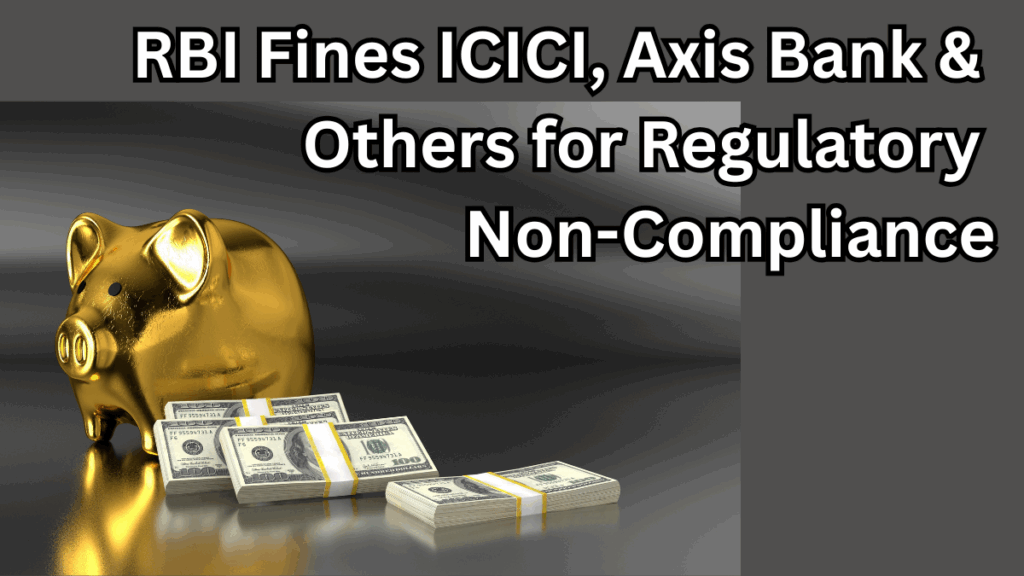In a recent regulatory move, the Reserve Bank of India (RBI) has imposed monetary penalties on five major Indian banks, including ICICI Bank and Axis Bank, citing failures in regulatory compliance. This action reinforces the RBI’s ongoing push to ensure tighter governance and accountability in the country’s banking sector.

Table of Contents
What Prompted RBI’s Action?
According to the RBI’s official statement, these penalties were the outcome of thorough inspections and reviews of the banks’ operations. The central bank found lapses in multiple areas, including non-compliance with directives related to loans, Know Your Customer (KYC) norms, and reporting obligations.
Banks Penalized & Reasons Behind the Fines
Here’s a snapshot of the penalties and the key violations that triggered them:
Bank Name |
Penalty Amount (₹) |
Key Reason for Penalty |
|---|---|---|
ICICI Bank |
₹1 crore |
Non-compliance with RBI directives on loans & advances |
Axis Bank |
₹90.92 lakh |
Breach of norms concerning KYC and internal control |
Indian Bank |
₹1.45 crore |
Faults in loan disbursement policies and monitoring lapses |
Bank of Maharashtra |
₹1.45 crore |
Irregularities in reporting non-performing assets (NPAs) |
Punjab & Sind Bank |
₹1 crore |
Failure to follow standard procedures for asset classification |
What Does This Mean for Customers?
While these penalties may sound alarming, the RBI has clarified that they don’t impact the customers directly. The fines are administrative in nature and are meant to ensure banks stick to the rulebook.
However, such actions signal a deeper concern:
-
Banks may be faltering in internal checks and balances
-
There is an increasing need for transparent banking practices
-
RBI is committed to cleaning up the sector through strict supervision
RBI’s Stand: A Stronger Regulatory Grip
The central bank is making it crystal clear: non-compliance won’t be tolerated—even from the country’s biggest lenders. In its statement, the RBI emphasized that:
“These penalties are based on deficiencies in regulatory compliance and are not intended to pronounce upon the validity of any transaction or agreement entered into by the banks with their customers.”
This underscores RBI’s commitment to:
-
Protecting depositors’ interests
-
Strengthening the credibility of India’s banking system
-
Enhancing transparency and governance
Key Takeaways for the Industry
The penalties serve as a wake-up call for other banks and financial institutions. Here’s what the banking ecosystem can learn:
-
Stricter compliance monitoring must become a priority
-
Customer-centric transparency should be at the core of all banking operations
-
Self-auditing mechanisms need to be regularly upgraded
FAQs:
1. Why did the RBI fine these banks?
The fines were imposed due to various violations, including non-adherence to loan guidelines, lapses in KYC compliance, and faulty reporting practices.
2. Will this affect my money in these banks?
No, these penalties are regulatory in nature and don’t affect customer deposits or services.
3. How often does RBI penalize banks?
The RBI conducts regular inspections, and penalties are issued if it finds serious non-compliance. Such actions are part of its broader supervisory framework.
4. What should banks do to avoid such fines?
They must maintain strict internal compliance systems, regularly train staff, and ensure that RBI guidelines are implemented without exception.
Click here to learn more
